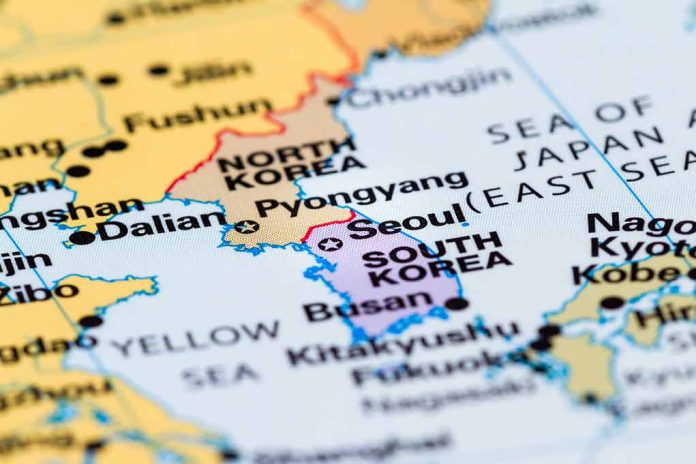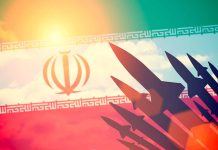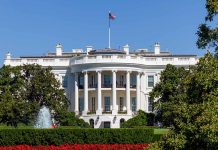
The U.S. presses North Korea to ease tensions, urging an end to provocative actions that could destabilize the Korean Peninsula further.
At a Glance
- The U.S. calls on North Korea to refrain from actions heightening conflict risks with South Korea.
- North Korea’s removal of symbolic border roads raises tensions between the Koreas.
- Concerns rise over reports of potential North Korean soldier deployment in Ukraine.
- White House remains vigilant about North Korea’s military movements amid increased escalations.
- Diplomatic efforts are emphasized to stabilize the situation on the Korean Peninsula.
Escalating Tensions
The United States has firmly urged North Korea to cease any actions that could heighten conflict risks amid the already fragile situation on the Korean Peninsula. Recent provocations, particularly North Korea’s dismantling of symbolic border roads meant to symbolize peace, have significantly raised tensions. The U.S. State Department is closely monitoring developments, working in cooperation with South Korean authorities to address these growing challenges.
Reports have emerged pointing to possible North Korean soldiers being sent to assist Russia in Ukraine. Such developments have sparked global concern, though National Security Adviser John Kirby admitted that these reports remain unverified. These rumors compound the current strain between both Koreas, recently exacerbated by incidents of propaganda leaflet distribution and drone incursions.
Military Concerns and Diplomatic Efforts
U.S. officials underscore the importance of returning to diplomacy, advocating for dialogue to manage tensions. Destruction near the demilitarized zone illustrates North Korea’s strategic posturing, leading many to speculate that such actions are strategic maneuvers in anticipation of impending American presidential elections. Meanwhile, North Korea unveiled a uranium enrichment facility recently, gaining international attention amid ongoing speculation that it might conduct a seventh nuclear test.
North Korean leader Kim Jong Un highlighted plans to bolster the nation’s armed forces despite the ongoing regional threats, emphasizing the need for nuclear capabilities. The EU has reiterated that North Korea won’t be recognized as a nuclear weapon state, urging compliance with UN resolutions demanding the abandonment of its nuclear programs. Analysts argue that North Korea aims to bolster its agenda posturing politically rather than attempting direct influence over U.S. electoral outcomes.
Global and Regional Implications
Concerns linger over potential nuclear tests, with a belief that North Korea might refrain from such actions before the U.S. election, potentially using the uranium disclosure as leverage. However, preparations for an extended nuclear confrontation remain. Notably, North Korea has not conducted a nuclear test since September 2017, fueling speculation regarding future developments and diplomatic engagements.
The international community’s focus remains on ensuring regional stability and nuclear disarmament. As diplomatic channels remain open, the hope is to de-escalate tensions, preventing any potential military confrontations on the Korean Peninsula.







